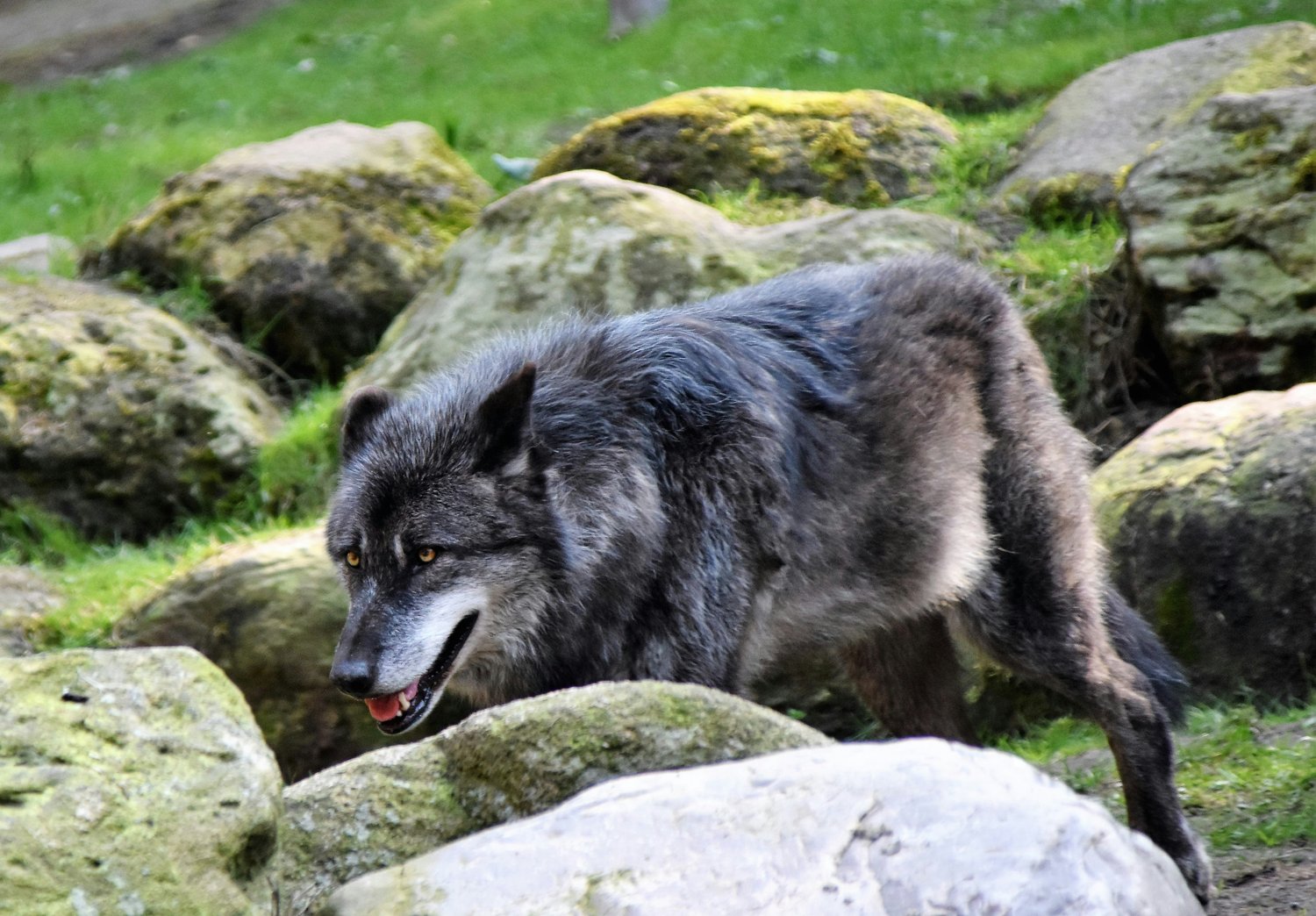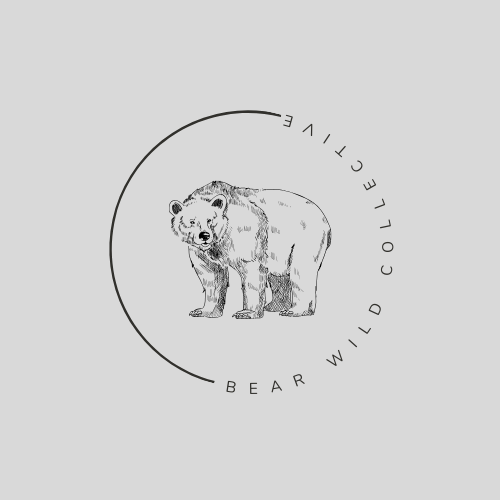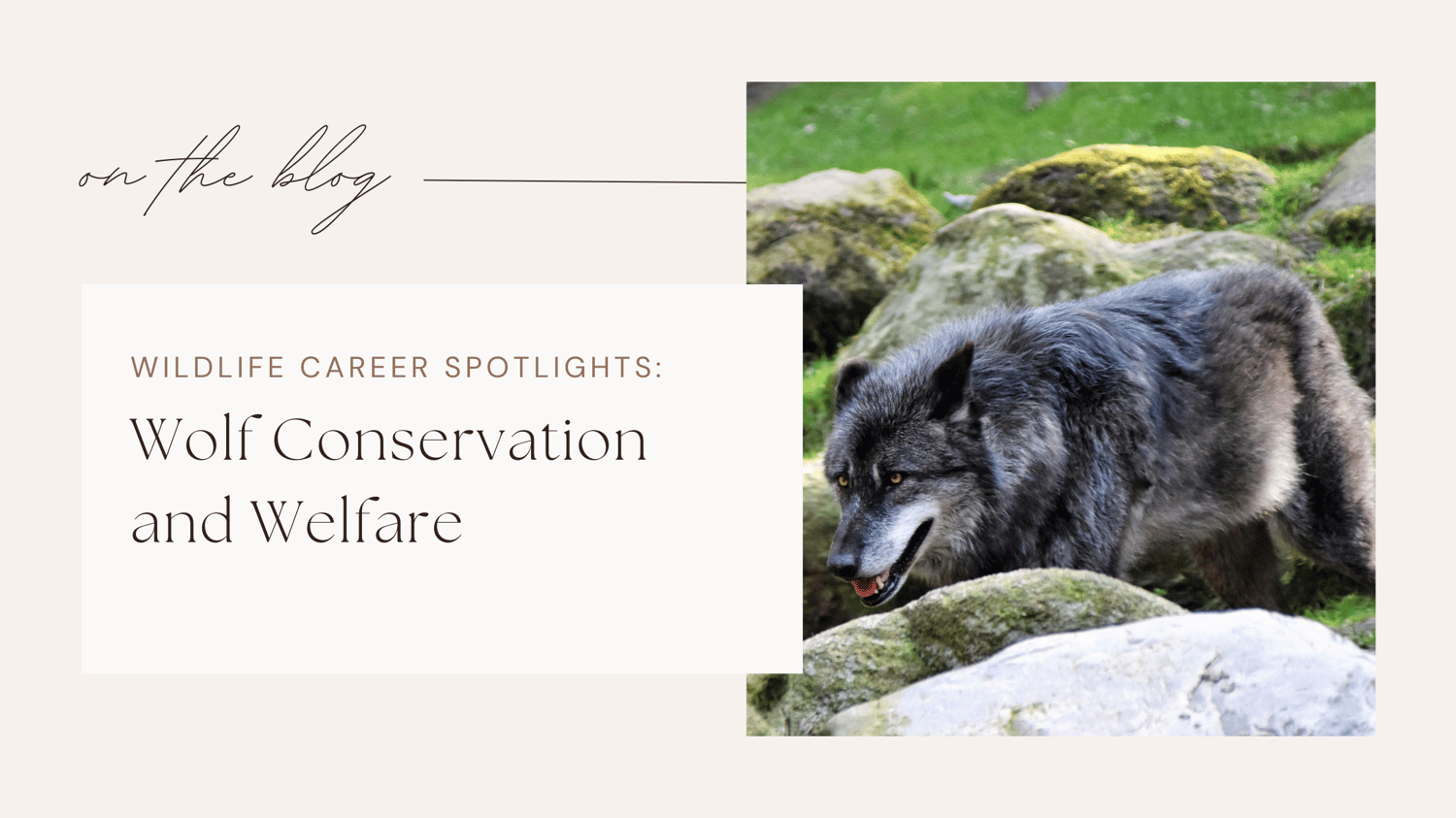Wolf conservation offers a unique and exciting career path for those passionate about wildlife, ecology, and protecting apex predators. Wolves play a crucial role in maintaining healthy ecosystems by regulating populations of prey species and promoting biodiversity. However, due to habitat loss, human-wildlife conflict, and poaching, wolves are still facing numerous threats. As a result, there are a variety of career opportunities for individuals interested in wolf conservation.
See our Wildlife Career Accelerator for inspiration and to discover diverse job types for every skill set, or read below for more info about careers in wolf conservation and welfare.

[Credit Waldemar]
Leading the charge:
- The International Wolf Center: This organisation offers educational programs, research, and advocacy efforts focused on wolves, both in the wild and in captivity.
- Defenders of Wildlife: A leading advocate for wolf conservation, this organisation works to protect wolf populations through legal, scientific, and political efforts.
- The Wolf Conservation Center: Located in New York, this center provides education, research, and hands-on conservation programs dedicated to wolf protection and restoration efforts.
- The UK Wolf Conservation Center: A non-profit organisation working to keep wolves in the wild.
These organisations and others like them offer diverse roles, from field research to policy advocacy. Some examples of the types of roles are:
Wildlife Biologist/Ecologist
Wildlife biologists specialising in wolf conservation play a key role in studying wolf populations, behavior, and habitats. They gather data through fieldwork, tracking and monitoring wolf packs, and conducting studies to assess the health of ecosystems. These roles often require a background in biology, ecology, or wildlife management.
Conservation Policy and Advocacy Roles
Policy professionals and advocates work to protect wolves by influencing legislation and advocating for the establishment of protected areas. They might engage with lawmakers, local communities, and organisations to promote policies that help conserve wolf habitats and reduce human-wildlife conflict. Advocacy roles also involve public education campaigns to raise awareness about the importance of wolves in ecosystems.
Wildlife Enforcement Officer
A wildlife enforcement officer ensures that laws designed to protect wolves and other endangered species are enforced. This may involve investigating poaching, illegal trapping, and other activities that threaten wolf populations. They often work with local authorities, wildlife protection agencies, and environmental organizations to reduce the illegal killing of wolves.
For more insight, visit this detailed account of a career in wolf conservation and welfare from Michelle Proulx - the Director of animal care and educational programs at W.O.L.F Sanctuary, Colorado, USA. Michelle describes how being able to spend her days hanging out with wolves is an emotional and awe-inspiring experience.
These roles contribute directly to wolf protection, helping to protect these amazing animals for generations to come. A career in wolf conservation offers rewarding opportunities for those passionate about protecting these creatures.



